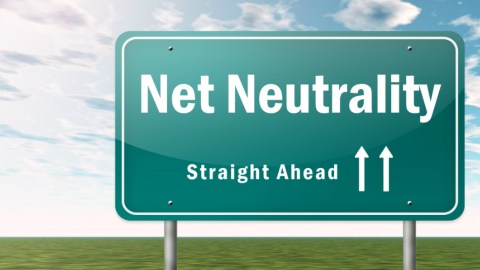The FCC Approves Net Neutrality

Finally, after years of cultural debate and countless Reddit posts, a major decision has been made on net neutrality. As reported by seemingly everyone, the Federal Communications Commission’s board has decided by way of a 3-2 vote to adopt a plan that, according to DCist, “ensures a free and open Internet in the strictest sense of the words.” The vote results belie a partisan disagreement over the topic though; the three Democrats voted “yes,” while the two Republicans voted “no.”
Timothy B. Lee of Vox has a pretty good summary of what the decision means and how it will affect the broader public. Here’s his succinct definition of net neutrality:
“Network neutrality is the idea that internet service providers (ISPs) should treat all internet traffic equally. It says your ISP shouldn’t be allowed to block or degrade access to certain websites or services, nor should it be allowed to set aside a “fast lane” that allows content favored by the ISP to load more quickly than the rest.”
Lee walks through how a popular groundswell from the internet helped strengthen the now-approved rules proposed by FCC Chairman Tom Wheeler. While free internet activists are rejoicing, the two dissenting Republicans summed up the opposition’s stance by describing the regulation as government overreach. Lee reports that Wheeler responded to these criticisms by comparing net neutrality’s protections to the First Amendment as it relates to free speech.
While the official text of the approved policy is not yet available, Lee notes that a brief fact sheet has been released to summarize its key points:
“The rules would prohibit ISPs from blocking or throttling disfavored content. They would also ban paid prioritization — the practice of accepting payment to give some content a higher priority than others. Finally, it would require ISPs to be more transparent about how they run their networks.”
Photo credit: mindscanner / Shutterstock
For an alternative perspective on net neutrality, check out the video below featuring Big Think expert Nicholas Negroponte.





